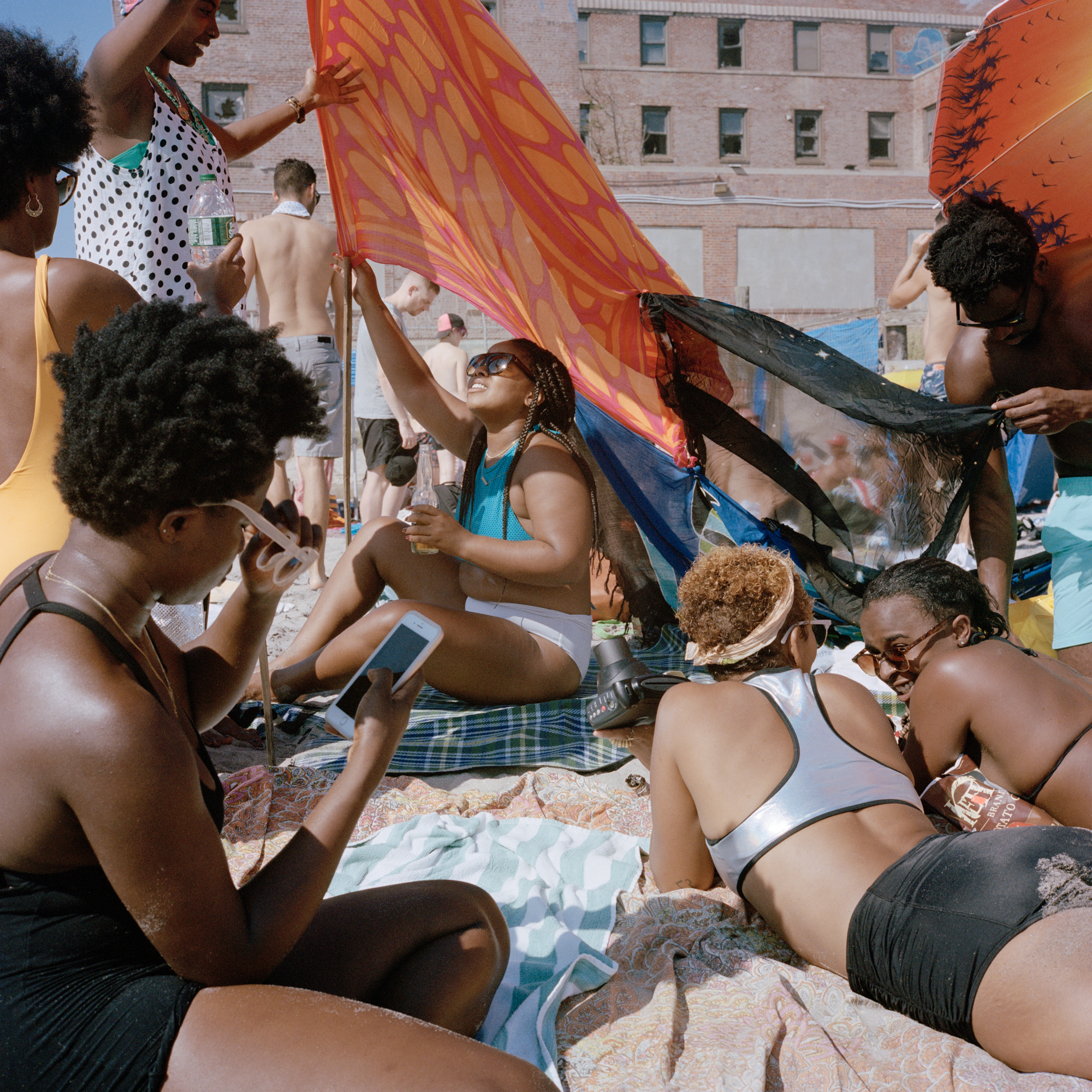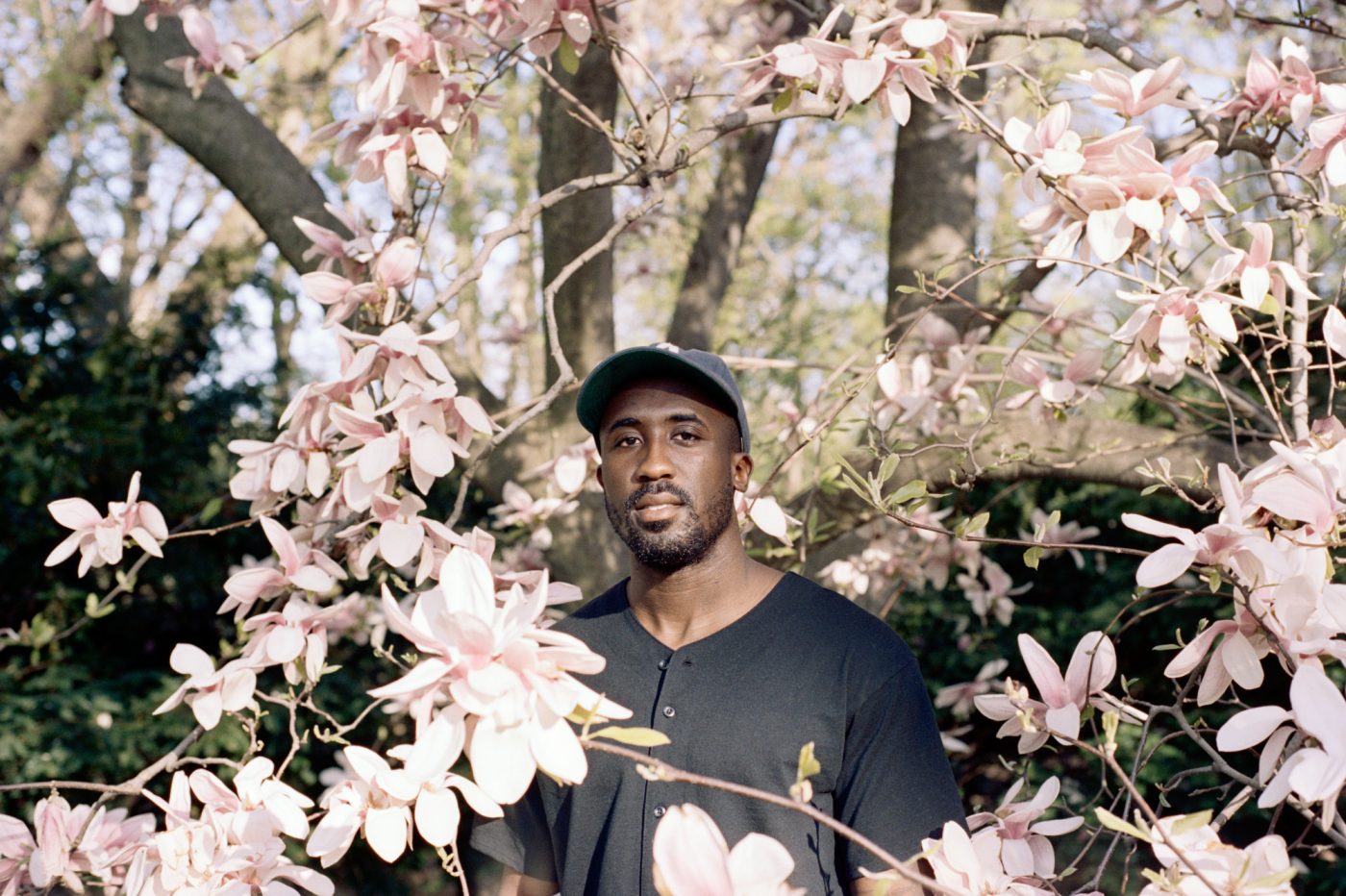Why
For where two or three are gathered together in my name, there am I, in the midst of them.
Matthew 18:20
Thus said Jesus the Christ, and the words of that Black deity speak to the who, what, where, when, and how of BlackSpace. We don’t have to name, measure, or formulate it; it is who we are, wherever we are, when we are together. BlackSpace really doesn’t have to do with Christianity, although it just so happens that Jesus’s words are germane to our cause. What this lovely Biblical verse does not tell us is the why of BlaxckSpace: why do we need our own space? Jesus’s words are apropos because we, like early Christians, are besieged by foreign, if not hostile, forces at every turn and, like his band of outsiders, we risk our safety in coming together, in creating our own space. So we need a refuge, and we call it BlackSpace.

As Kerry Washington pointed out in the May 2018 issue of Essence Magazine, “BlackGirlMagic” has always existed, certainly long before it became a millennial meme. The same holds true for the concept of BlackSpace. Nevertheless, it is crucially important at this point in American history and in African Diasporan history that we own and name these concepts. We must empower and entitle ourselves to ourselves, so as to remind us of who we really are. We are beautiful. We are Black. And we make our own space “whenever two or three are gathered. . . .”
In the pre-colonial African Motherland, BlackSpace was the name of the game: no reason to quantify, question, contest, or defend it. Needless to say, intra-continental wars and tribal hierarchies created divisions and social tensions that could prohibit a conquered group from gathering, but the issue was ethnic and/or socio-political—not racial or “black,” in the lower-case, European sense (i.e. a concept introduced as a pejorative through white penetration of Africa). Once Europe comes to The Motherland—and then brings Africans to Europe and the Americas— BlackSpace is generated out of necessity, and Black people are faced with the monumental task of chiseling out safe havens within the concretized caverns of racial oppression.
Rereading Octavia Butler’s Kindred, I was awestruck by the lucid, luminous writing of this oracular sister, particularly in her descriptions of the few and fragile BlackSpaces that could be created during enslavement. The safest was Sarah the cook’s small hut attached to the “white house,” to which Dana, the protagonist, and some of the enslaved characters would retreat for a few moments of solace. I also think of the literally and figuratively moving BlackSpace of the Underground Railroad, whose travelers fashioned safe havens through time/space/place. What we Africans did to Christianity during our enslavement was to reshape it in our own image, creating a style of Jesus-worship through dance (ring shout and physically embodying the holy spirit) and song (spirituals and their secular cognate, the blues). We made Christianity a BlackSpace phenomenon.
Over and over we have created these sanctuaries. Every time a few of us get together on a city stoop or an urban corner, for whatever our intentions, we are creating BlackSpace. For centuries, since slavery and even earlier, this gathering of “two or three” has caused havoc in the minds of fearful whites. For them, seeing two or more Blacks talking or laughing or even quietly hanging out together is reason enough for panic, if not violent reaction. See Starbucks in downtown Philadelphia, and two brothers ejected by police. See the example in Berlin of the group of Black British tourists, having bought plenty of food (totaling 118 Euros, or 137 US dollars) at a KFC, being told to stop laughing and ultimately being ejected by police. See the example in York, Pa., of five gentrified African-American women, golfing adepts and members of this particular club, carving out BlackSpace on a white golf course and being asked to leave. From the outsider perspective, there’s something enviously private and exclusive about BlackSpace inside white enclaves—something that raises hackles. It goes on and on, this “fear of a Black planet,” merely by dint of a few Black people sharing space, hanging out, having fun, in a designated white space. (How could anyone get angry at hearing Black laughter, which was the complaint in the Berlin example. Black laughter, in all its many shadings, innuendoes, and complexities, is creative, witty, ironic, side-splitting, and makes a radiant BlackSpace, wherever it erupts!)
BlackSpace is a state of mind as much as an ethnic descriptor. Certain vetted whites may be allowed to enter, at our invitation, but the choice is up to us. If we allow “the other” in our space, they are invited to stay on our terms, taking their lead from us and remaining a minority in the background. Thus, for a white visual artist, Dana Schutz, to depict Emmett Till in his coffin, we shout a collective NO: You are treading on sacred BlackSpace, with no invitation! (Her painting, Open Casket, aroused major protest from African Americans when it was included in the prestigious 2017 Whitney Biennial.) On the other hand, we make films like Black Panther that envision an imaginary, future BlackSpace, and we freely grant entry to “the other.”
We generate BlackSpace by coming together and being together. But BlackSpace isn’t necessarily nirvana. There is the toxic version that is created when we are brainwashed into holding debasing, destructive perspectives on Blackness: colorism; exploitation of differences of class, gender, or ability; and a kind of critique/name-calling that can be characterized as “the dirty dozens.” But this is to be expected. After all, Black folk are human and as prone to pettiness, violence, and hatred as any other people. Someone told me of hearing Alice Walker speak at a conference recently and ask how we can expect to find our healing if we don’t look at our own wounds. If we don’t acknowledge the dirt, how can we clean house? What I find cathartic about acknowledging multiple aspects of BlackSpace is that we keep the ball in our own court, recognizing and accepting our own responsibility, ownership, and self-possession, for better or worse. It gives us some leverage in understanding how we as people of African lineage have thrived and succeeded despite all efforts to thwart us, whether from without or from within.
That said, it’s clear that we need BlackSpace, just as children need parents, friends need friends, partners need partners. It’s one of the many modes that defines, creates, nurtures, and enhances our humanity. We need BlackSpace viscerally, spiritually, mentally, emotionally, and economically. I am thrilled to see that we’re making our own coffee house alternatives to Starbucks and other white chains that are notorious for making us feel unwelcome. One example, here in Philly, owned and managed by Marc Lamont Hill, a Temple University English Department professor, is devoted to Diasporan literature and is lined with books on every wall and exudes Black love, hospitality, and achievement. (See www.unclebobbies.com) These independent alternatives are springing up nationwide. But these are small-change ventures, like the many Black-owned restaurants, taverns, delis, and hair salons across the nation. I’m thinking bigger BlackSpace. Maybe, in the long run, we would love to have BlackSpace communities, villages, towns, cities right here, in the United States of America—not off-limits to whites, but with Diasporan folk in the majority and running the show. Black Wall Streets like the ones in Durham, N.C., Richmond, Va., and the earlier, though ill-fated community in Tulsa, Okla. Black towns like the one in Eatonville, Fla., where Zora Neale Hurston came from, but created by us and not circumscribed by white racism. We need our own spaces for Black enterprise and black fiscal practicalities. Until we have that in the United States and in the Motherland, BlackSpace will always be a fragile, vulnerable matter of the spirit, as in Octavia Butler’s Kindred. We deserve more. We deserve BlackSpace that is Black Beyond Borders! Axé.
End note: I didn’t mention our dance community in my musings. I leave it to the reader to ascertain where and how our profession is implied herein.
